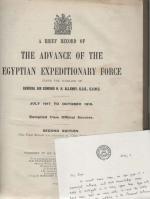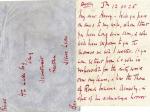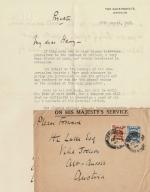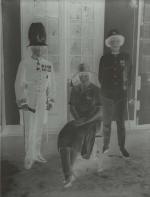7. [Palestine Content / Ecclesiastical] – [Luke, Sir Harry / Lukach, Harry] Storrs, Sir Ronald Henry Amherst.
Typed Letter Signed (TLS) and partly Autographed Letter on Stationery of The Governorate, Jerusalem, from Sir Ronald Henry Amherst Storrs to Sir Harry Luke. The two-page letter was written by Storrs in August 1925, during his posting as Governor of Jerusalem and reached Sir Harry while he was holidaying in Alt-Aussee (Austria). During this period, Luke was Colonial Secretary in Sierra Leone. Storrs writes: “My dear Harry – If this gets you in time please introduce yourselves to the Duchess of Rutland, a very dear friend of mine, and deeply interested in Jerusalem. “On behalf of the Council of the Pro-Jerusalem Society I have much pleasure in giving you permission to use the article and map produced by you for the second volume of the Annales on the Holy Sepulchre……[Storrs continues]: “The Plumers arrived the day before yesterday…. [that is Field Marshal Lord Plumer who was High Commissioner of the British Mandate for Palestine in 1925]…… and were well received by both sides……” [In Mandatory Palestine Plumer gained a reputation as being “genuinely even handed” and was one of the few British administrators who was consistently popular with both the Jewish community and the Arab community in that territory. Privately, he was sympathetic to the cause of establishing a homeland for the Jewish people; however, he tried his best to “be fair” to Arab concerns as well while he was High Commissioner there (source: Wikipedia)]. Storrs continues: “The Hendersons also to hand. The Worlds worker, now about to become a Mamur Hajz or Seizure Officer, rejects your cowric shells…..with all the contempt of a Mutamaddin for the Mutawahhishin…..I do hope you will secure in arriving Leone”
[This item is part of the Sir Harry Luke – Archive / Collection]. Jerusalem, 27th August, 1925. Quarto. 1 sheet (2 pages partialyy typed, partially in manuscript hand by Storrs). From the private collection / library of colonial governor, diplomat and historian, Sir Harry Luke.


















